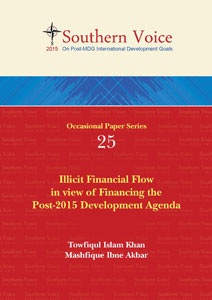Southern Voice’s network member Neeti Biyani of Centre for Budget and Governance Accountability (CBGA) writes about India’s Transparency Reforms to…
[row][third_paragraph] [/third_paragraph][paragraph_right]
[/third_paragraph][paragraph_right]
The present study argues that not only is it important to have dedicated targets and indicators towards curbing illicit financial flow (IFF) in the post-2015 development agenda, but it is also necessary to understand the influencing factors behind the growing IFF phenomenon. The results of the quantitative analysis are intuitive in certain arenas, as well as confirmative in other aspects. Per capita GDP, openness and capital account convertibility have been found to be significant determinants of IFF in the developing countries.
Nonetheless, exchange rate, inflation, democratic accountability and political stability also influence the flow of capital outflow, but these variables are interpreted with caution since these variables were not found to be influencing IFF in all of the estimation techniques considered in the analysis. The paper emphasises that continuous efforts will have to be put to uphold this issue when the Sustainable Development Goals (SDGs) are finalised at the United Nations General Assembly.
Author: Towfiqul Islam Khan and Mashfique Ibne Akbar
[/paragraph_right][/row]

